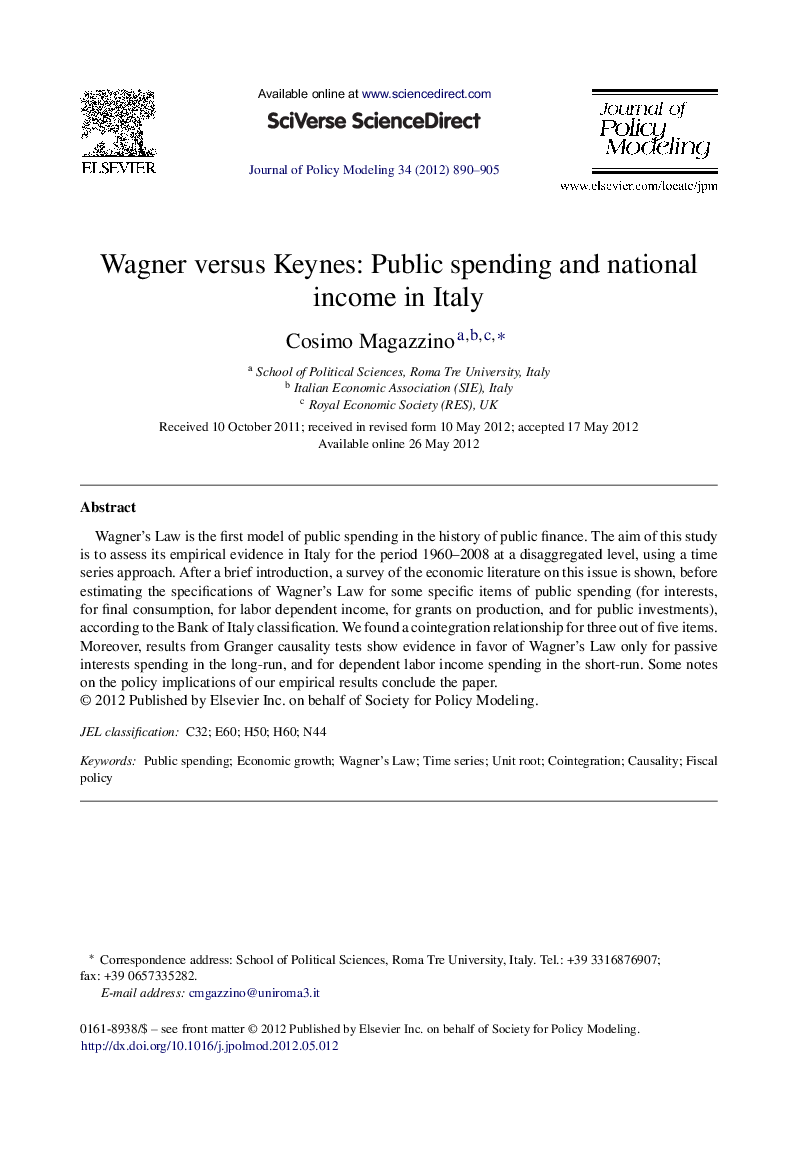| Article ID | Journal | Published Year | Pages | File Type |
|---|---|---|---|---|
| 968609 | Journal of Policy Modeling | 2012 | 16 Pages |
Wagner's Law is the first model of public spending in the history of public finance. The aim of this study is to assess its empirical evidence in Italy for the period 1960–2008 at a disaggregated level, using a time series approach. After a brief introduction, a survey of the economic literature on this issue is shown, before estimating the specifications of Wagner's Law for some specific items of public spending (for interests, for final consumption, for labor dependent income, for grants on production, and for public investments), according to the Bank of Italy classification. We found a cointegration relationship for three out of five items. Moreover, results from Granger causality tests show evidence in favor of Wagner's Law only for passive interests spending in the long-run, and for dependent labor income spending in the short-run. Some notes on the policy implications of our empirical results conclude the paper.
